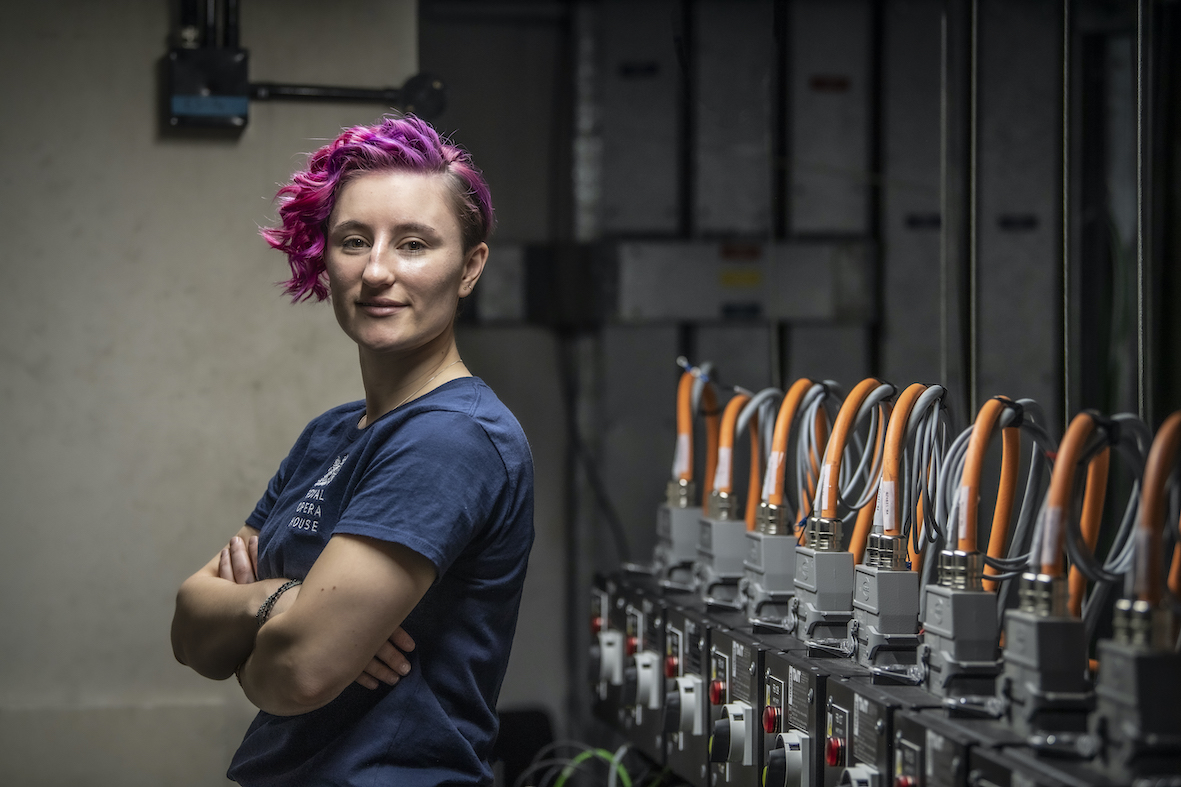An important and often overlooked route into the industry, especially for many non-performing roles. Susan Elkin has some suggestions.
Theatre is like an iceberg. For every role on stage there are probably at least half a dozen technicians you can’t see. And the industry has been telling us for decades that there are skills shortages in these areas. So we need to educate our dramatically inclined students (and their parents) about these opportunities bearing in mind, too, that lighting technicians, stage managers, make-up artists, costume makers, scenery builders, designers, writers, directors and the rest are often paid more than performers. Moreover, the skills are transferable. Such technicians often also work in film, TV, video production, concerts and events.
Parents and students are often put off by the prospect of drama school – even for technical rather than performance training – by the accruing debt and a perception of uncertain work potential at the end of it. Enter apprenticeships.
An apprenticeship is a paid training position, supported by the government, in which the young apprentice learns the skills from a qualified experienced person usually with about one fifth of the time spent learning theory in college. Most people know that this is the best way to get into plumbing, bricklaying or electrics. But in recent years there have also been many opportunities in technical theatre towards which we should certainly be pointing some of our students.
Take the National Theatre, whose apprenticeship scheme has been running since 2012. So far young 42 people have trained across sixteen different departments including costume, wigs, hair and make-up, props, IT, finance and marketing. There’s even an apprenticeship in concrete management – because that’s what the building is made of. At present there are thirteen NT apprentices all training for work in a very focused way with lots of experience on specific “projects” which usually means productions. At the end of the training the apprentice achieves a level 2 or 3 qualification.
Mostly out of London, the RSC runs an even broader apprenticeship programme in Stratford-upon-Avon. The range includes customer service, venue management, scenic carpentry, scenic engineering, catering, costume, prop making, automation and maintenance engineering. These are, the RSC stresses, “real jobs with a salary”. That usually means the minimum wage or not much above it, but is still – for many – a much better option than accruing student debt. These posts last for one to four years, leading to a level 2 or 3 qualification and twelve new ones were announced during National Apprentices Week last spring.
The Royal Opera House’s apprenticeship scheme has been in place for 15 years and 184 apprentices have trained through it. Posts are advertised in May each year ready to start in September.
Some of the work is based at the company’s production park at Thurrock, next to the Dartford Crossing, in the Bob and Tamar Manoukian Production workshop and costume centre – I watched an apprentice working on a tutu for Swan Lake there. She was applying feathers and told me that each costume is a week’s work. I have also observed scenery painting (from a viewing gallery) and chatted to the very enthusiastic scenic carpenters. It’s a vast space servicing productions at one of the country’s most prestigious venues and everything is on a grand scale, but the young people you talk to on the ground are from all backgrounds and seem to love what they’re learning to do.
ROH apprenticeships include theatre technician, lighting technician, costume, tailoring, scenic metalwork, scenic art, archive and marketing. This year they added positions in IT, finance and marketing. And this is an interesting point – in a big company almost every skillset is needed. Even parent-pleasing work such as accountancy and law are part of the mix!
ATG (Ambassador Theatre Group) is a nationwide company which owns 58 venues across Britain, the USA and Germany, including historic theatres, small theatres and concert spaces. It runs a two-year technical apprentices scheme which covers lighting, flys and stage management among other things. As well as spending the statutory 20% of the time in college or on specific courses, ATG promises that “You’ll work in at least two different theatres on a range of shows”.
In addition to the big companies some independent regional theatres run apprenticeships although these tend to come and go. Wherever you are it’s worth talking to your local theatre about paid training opportunities for keen school leavers.
Knowledge is power and there really are ways of getting into the performing arts and making a living without accruing £50,000 worth of debt. Some apprentices are so valued for what they’ve learned and can do, that they find permanent employment in the organisation which trained them. And even if this doesn’t happen they will have made lots of contacts which will allow them to set off on a freelance career.
Search for a suitable apprenticeship at www.gov.uk – Find an apprenticeship
National Apprenticeship Week 6-12 February 2023 nationalapprenticeshipweek.co.uk
So You Want to Work in Theatre? by Susan Elkin (Nick Hern Books)



